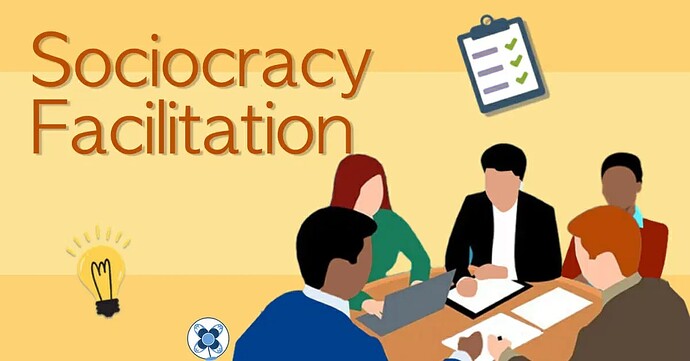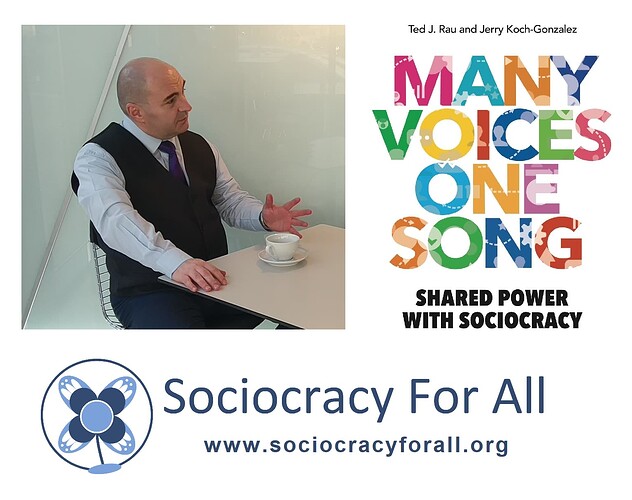Sociocracy, also known as dynamic governance, is a decision-making and governance method that aims to create inclusive and equitable organizations. It provides a structured framework for decision-making and fosters collaborative participation among members.
Facilitating simple and complex selection in sociocracy involves following certain principles and practices to ensure effective decision-making and engagement of all members in the decision-making process. Here are some tips for facilitating simple and complex selection in sociocracy:
- Clearly define the decision-making domain:
In sociocracy, decisions are made within defined domains or circles. Clearly defining the scope and boundaries of the decision-making domain helps to avoid confusion and ensures that decisions are made at the appropriate level of authority. Facilitators should ensure that the decision-making domain is well-defined and understood by all participants.
- Use the consent decision-making process:
Sociocracy uses a consent-based decision-making process, which means that decisions are made based on whether there are any objections, rather than requiring full consensus.
Facilitators should guide the group through the consent decision-making process, which involves presenting a proposal, allowing for clarifying questions, and then checking for objections. If no objections are raised, the proposal is accepted. If objections are raised, they should be addressed through a process of integrating the objection(s), reshaping (modifying) the initial proposal and synthetize one that everyone can consent to.
- Encourage open and inclusive participation:
Sociocracy emphasizes equal participation and engagement of all members in decision-making. Facilitators should create a safe and inclusive environment that encourages open participation and respects diverse perspectives. They should ensure that all members have an opportunity to express their thoughts and concerns and that no one dominates the decision-making process. We name this principle “equivalence” (of voices).
- Use decision-making tools:
Sociocracy provides various decision-making tools, such as rounds, exploring dimensions, clarifying questions, quick reactions and consent rounds, to facilitate effective decision-making.
Facilitators should be familiar with these tools and use them appropriately to ensure that everyone has a chance to participate and that decisions are made efficiently and effectively.
- Consider the complexity of the decision:
Sociocracy recognizes that decisions can vary in complexity, and different decision-making methods may be required depending on the nature of the decision.
Facilitators should assess the complexity of the decision at hand and select an appropriate decision-making method accordingly.
For simple decisions, a quick consent round may be sufficient, while complex decisions may require more in-depth discussions and problem-solving.
- Foster collaborative decision-making:
Sociocracy emphasizes collaboration and seeks to harness the collective wisdom of the group.
Facilitators should encourage collaborative decision-making by facilitating discussions, encouraging active listening, and promoting constructive dialogue among members.
They should also ensure that decisions are made with the best interests of the organization as a whole in mind.
Nonviolent Communication (NVC) is often use in sociocracy to reach a mutual understanding, solve tensions, avoid conflicts and finally be effective and efficient working and deciding together.
- Follow sociocratic principles and practices:
Finally, facilitators should be well-versed in sociocratic principles and practices and ensure that they are followed throughout the decision-making process.
This includes principles such as consent-based decision-making, double-linking, and feedback loops, among others.
Facilitators should model these principles and practices and guide the group in adhering to them during the decision-making process.
In conclusion, to facilitate simple and complex selections in sociocracy requires a combination of effective facilitation skills, adherence to sociocratic principles and practices, and fostering a collaborative and inclusive decision-making environment. By following these tips, facilitators can help organizations make decisions that are inclusive, effective, and aligned with the principles of sociocracy.
To find more “in depth” insights on “Facilitating Simple and Complex Selections in Sociocracy”, I invite you to use this Sociocracy Manual:
I guess it is a good idea to combine theory with practice so I invite you to be present and to participate in our:

In the Community of Practice for Facilitators (CoP-F) no one teaches anyone, but we all learn from each other by practicing and sharing real life experiences.
We welcome your presence and contribution. It will enrich all of our sociocracy knowledge.
Next meeting is scheduled for May 8th, 2023, from 14:00 UTC (CoP-F East) and from 18:30 UTC (CoP-F West). We are available to schedule any other meetings, as necessary.
Best wishes to all of you!

